One of my loyal MGTP readers, Woodrow "Woody" Pace lives in this present-day wilderness. On the eve of Turkey Day, he told me the odd circumstances of why he is so thankful. So while the last few glowing embers of Thanksgiving are still warm within us, I share his timely story of appreciation with you.
Pace is a self professed, "hardcore piney." Most pinies (residents of the Pine Barrens) look and act like everyone else. They don't rely on fresh road kill for meals and have all their teeth (or like Woody, have a decent dental plan at work). However, some pinies are indeed hillbilly-like folks who live in the tiny municipal dots of the ecologically preserved interior of South Jersey.
A vanishing breed, many pinies relocate but almost no newcomers move in to take their place. As for the overwhelming amount of rednecks who stay, they take pride in their "piney power" and yesteryear lifestyles.
About fifteen years ago Woody Pace got divorced. In order to maximize keeping his income, Pace started working a couple of nights (off the books) at the Cranberry Roadhouse, (the only bar in his tiny town). The owner, Jimmy G. was from the richest family in that part of the undeveloped territory.
Jimmy G's clan was from a long line of pineland bankers and lawyers whose roots could be traced through Philadelphia and further back to the Mayflower. Jimmy was set to follow in his pedigree's dynamic footsteps but due to audacious behavior as a result of acute alcoholism, he was kicked out of two Ivy League colleges as well as Penn State and Georgetown.
In the mid-70's, rather than take his riches anywhere else in the world, Jimmy G. without a shred of ambition, returned to the pinelands. He bought a ramshackle drinking hole, (the only tavern for miles around) and drank himself into a nightly stupor for twenty-plus years.
Woody described Jimmy G. as a real life, "ARTHUR," (as in the 1981 romantic comedy starring Dudley Moore, Liza Minnelli and John Gielgud). Which meant that despite Jimmy being a genius, he wasn't motivated by the idea of work, responsibility, more money or power. He was just content to idly laugh his way through life and party along side his friends and customers.
Click on the link below to see Christopher Cross' four-minute theme from, "ARTHUR."
http://www.youtube.com/watch?v=fcwLrEATXH4
One could say, like Arthur, Jimmy was caught in the pinelands which is somewhere, "between the moon and New York City."
 |
| ARTHUR WAS A CHILDISH, SPOILED, BUT LOVABLE, FILTHY RICH DRUNKARD. ADS FOR THE MOVIE ASKED, "DON'T YOU WISH YOU WERE ARTHUR?" |
Woody was nineteen and unaware of Jimmy's mounting legal predicament as he saw a car veer off the blackened, back road and plow into the woods. Woody went to help. He didn't recognize the semi-conscious victim until he pulled Jimmy G's bloodied body from the scraped-up, showroom new Corvette.
Jimmy G. was blithering drunken nonsense as Woody struggled to transfer the boozer's dead weight into his pick-up truck, (the one with the piney-chic bumper sticker that read; I DON'T BRAKE FOR ANYTHING). Jimmy's incoherent droning continued for the two-mile drive back to his lonely bachelor house.
Woody was thrilled that Jimmy didn't puke in his truck as he dumped the sot on the sofa and whispered, "Want me to call anyone?" Between burps, Jimmy's first clear statement was, "No, I'm okay...but don't tell anyone...and...take this." When Woody saw he was given a hundred dollar bill he said, "No, I can't..." But Jimmy interrupted, "Take it, this'll be our little secret. I'll just tell everyone I ran into the Jersey Devil."
Woody drove back to the accident scene. He pulled away as many rocks and branches as he could before gingerly backing Jimmy's scratched and dented car out of the woods. He drove it back to Jimmy's. It was 4:00AM after Woody walked back two miles, retrieved his truck and went home.
The hundred dollar bill part of the story reminded me of a passage from the novel, "THE JUNGLE."
The Jungle involved the turn of the 20th century struggles of Lithuanian immigrant Jurgis (YOOR-HEEZ) Rudkus who worked for "wage slavery," in the Chicago stockyards. Jurgis and his family represent the hopelessness of the non-English speaking working class. They are already living on the cusp of poverty when Jurgis gets severely injured on the job. Without social programs, benefits or any rights, he is fired.
Jurgis' already difficult life spirals uncontrollably downward. He becomes so desperate that for the price of a couple of drinks (ten cents) Jurgis allows himself to be bribed (numerous times), to vote for a corrupt politician. A melee ensues and Jurgis innocently saves Freddie Jones, (a drunken Arthur-like character) from hooligans. I'm guessing that this concept inspired (was stolen?) by the "Arthur" author.
Wealthy Jones takes Jurgis to his parent's mansion to wine and dine his new friend. The reader is led to believe that this will be Jurgis' salvation. But when Freddie's family comes home and sees their son entertaining a limping, stinking vagrant, Jurgis is given the bum's rush, (thrown out). But not before Jones gives Jurgis a hundred dollar bill and tells the chauffeur to drop him anywhere he wants.
Jurgis is homeless. He asks to be taken to the bar next to where the voting fraud occurred. He orders a beer. The bartender sees him as a tramp and demands to see the cash, (a nickel), first. Intoxicated and naive, Jurgis smacks down the hundred dollar bill. The opportunistic bartender drugs Jurgis, steals the money and gets him arrested. When Jurgis gets out, he returns to his new friend but Freddie Jones (now sober) has no memory of the presumed beggar standing in front of him.
I was starting to worry that Woody's hundred dollar bill was going to give his Thanksgiving story have a horrible ending like, "The Jungle."
Woody continued by saying, "Back in the day, I was a regular, underage drinker at the Cranberry Roadhouse. In a short time, me and Jimmy were kind of friendly. The crash was never mentioned...but when he was behind the bar, I was never charged for drinks...for over twenty years."
In 1998, Woody confided in Jimmy G. about his divorce situation. He added that he could use some pocket money especially on custody days with his kid. Woody then asked if he could tend bar a couple of days a week. Jimmy shrugged, "Sure."
At about the same time, Jimmy started coming to work less frequently. The rumor was he was sick. Less than a year later, he died from liver disease associated with alcoholism, Jimmy G. was fifty-three.
Woody seemed to go off-topic when he reminded me that in the most rural corners of the pinelands, there is a tremendous limitation on where to entertain a toddler. Luckily, Woody's son loved "Piney Paradise," one of the new, locally built and funded, interactive playgrounds springing up in just about every town.
One day, construction started on new additions at Piney Paradise. The three-pronged project included; a faux log cabin with modern restrooms, a rustic bench-lined path looping a nearby pond and a weedy marsh was cleared for six picnic tables. When the job was finished, a Victorian-styled plaque was placed at the junction of all three that read: IN LOVING MEMORY OF JIMMY G. Which meant that Jimmy's family donated all the money.
Woody showed the sign to his little son. He explained that his boss Jimmy G. was a great man and that he went to heaven. Then he said, "We should pray for Jimmy G." For the next year (twenty plus times) Woody and his son would kneel at the plaque and pray.
The two Pace boys were at the Piney Power Farmers Market when Woody spotted Jimmy G's elderly mother. Woody went over and shook Mrs. G's hand and said to his four-year old, "You know who this is...it's Jimmy G's mom." The little boy beamed, "We pray for Jimmy G. when we go to the park."
A week later, there was a knock on Woody's apartment door. A messenger hand delivered an official looking envelope addressed to Woodrow T. Pace. Inside was a letter from an attorney letter asking him to telephone for an appointment. He assumed his ex found a new lawyer who was going to bust his balls for more alimony.
He waited a week before making the dreaded call. The secretary gave him no information other than, "An anonymous source has set up a college fund for your son."
Earlier this week, Woody and his son began shopping for colleges. Woody told me, "My dad's dad had a tough life as a migrant blueberry picker during the depression. His son (my dad) lived in Fortesque and did better as a fisherman on the Maurice River. As for me, the casinos have given me, a still better life. But through the gift of education, my son can get out of the pinelands and do better than all of us."
Woody Pace still doesn't have cable-TV but he's thankful to Jimmy G. and his family for fronting the first $50,000.00 of hos son's tuition.




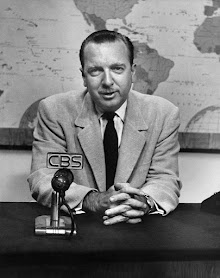









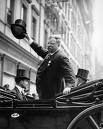



































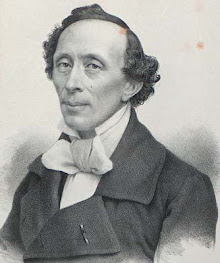


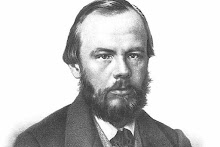










































































































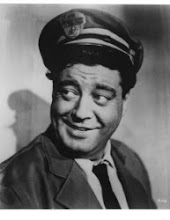





















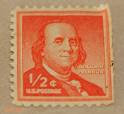



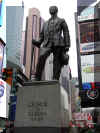





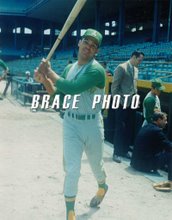




3 comments:
That was a good ending education is a gift that keeps on giving.
Loved your Woody and Jimmy G. giving thanks story. It brought a tear to my eye and a strange desire to move to the Suffolk County (Long Island NY) Pine Barrens. Except all they have there are potatos --- TICKLEMEERIC
Thanks for telling my story of thanks. You have great skill and I appreciate that you protected my identity. --- AKA - Woody T. Pace of the Pine Barrens
Post a Comment